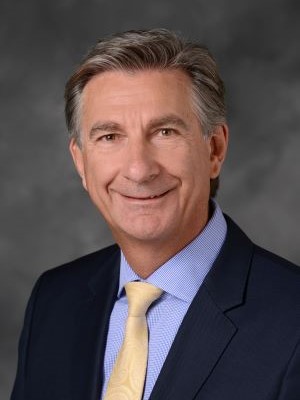
Ed Szandzik
PHARMACY
Graduated in 1980
Executive Vice President of the Michigan Society of Health System Pharmacists
Q: Why did you choose Wayne State University?
A: I chose Wayne State because it was close to home, it had a good reputation, and it was affordable. I also received a scholarship, which made it an easy decision for me to attend.
Q: What inspired you to pursue Pharmacy?
A: I knew in the 8th grade that I was going to be a pharmacist. I started working in a local pharmacy when I was 15 years old. I enjoyed and excelled in math and science, but most importantly, I had an uncle who was a pharmacist and a Wayne State graduate. It was his influence that inspired me to pursue pharmacy.
Q: Who was your most memorable Professor?
A: There were 4 professors who helped shape my career: Dr. Bob Louis Ferdinand, Dr. Hanley Abramson, Dr. Doug Miller and Dr. J.V. Anandan.
Q: What was your most challenging class?
A: Dr. Dunker! To be fair, Dr. Dunker was a really good man, but he was teaching a class with tough material.
Q: Where was your favorite place to study?
A: There was a small group of 5 or 6 of us and we would study in the “commons area” at Shapero Hall, where we took our classes.
Q: Did you have a favorite hangout on campus?
A: We spent the majority of our time at Shapero Hall, but we would occasionally go to the Golden Fleece for breakfast or lunch. The Golden Fleece still exists – you can go check it out!
Q: Share some reflections about your time at Wayne State:
A: I had a great time during my time at Wayne State. My class had about 100 students and it was a good group of people. Wayne State had the reputation of being a commuter school (and it was) but we were a really close knit group. The classes were challenging, but we also had a lot of fun together. We helped each other and wanted everyone to succeed. Our class took a trip to Eli Lilly in Indianapolis, and we had a graduation picnic on Belle Isle, complete with potato sack races.
Q: In your opinion, what is one of the biggest changes that has occurred in your profession since graduating?
A: When I graduated in 1980, clinical pharmacy was in its infancy. The pharmacist was just starting to participate in rounds with the physicians. It was all very new. At that time, the pharmacist had to demonstrate that we could add value to patient care. Today, it is accepted practice. The pharmacist is now an important and valued member of the patient care team.
Q: What is Ed doing now:
A: After 42 years at Henry Ford Health, I recently retired as System Vice President, Pharmacy. Today I am serving as the Executive Vice President of the Michigan Society of Health System Pharmacists. Although I have retired, I absolutely loved my career at Henry Ford and wanted to be involved in the profession in some way after leaving. Serving in this role at the Michigan Society of Health System Pharmacists allows me to continue to stay plugged in to health system pharmacy and gives me an opportunity to help mentor the next group of leaders. It is the perfect amount of time and engagement for me at this stage in my life.
Q: What advice would you give to today’s pharmacy students?
A: When I talk to students, I tell them that when I was in pharmacy school, I had tunnel vision. I was very focused on learning the material to pass the exams, moving from one class to the next. As I look back, I wish I had taken the time to enjoy, explore and learn more about everything else that was available to me. I now encourage students to take off the blinders and take advantage of the networking opportunities, attend professional organization meetings and pursue leadership opportunities. Also, I know it’s hard, but try to have as much fun as you can.
The Doctor of Pharmacy program at Wayne State University is a four-year curriculum in the heart of Detroit. Approximately 100 students are enrolled in each year of the program. WSU Applebaum information meetings for prospective students take place at 6 p.m. on the first Tuesday of each month. The application process or the Doctor of Pharmacy program begins each July.
An anchor in urban health care
The Eugene Applebaum College of Pharmacy and Health Sciences is built on more than 100 years of tradition and innovation in the heart of Detroit. We have grown deep roots in our city, harnessing its powerhouse hospital systems and community service organizations as vibrant, real-world training grounds for students, with an ongoing focus on social justice in health care. And our research at all levels – from undergraduates to veteran faculty members – translates into creative solutions for healthier communities.
Wayne State University is a premier urban research institution offering approximately 350 academic programs through 13 schools and colleges to nearly 24,000 students.